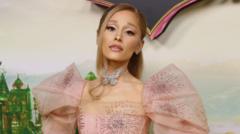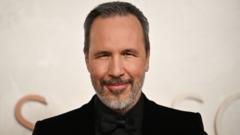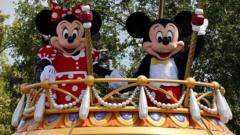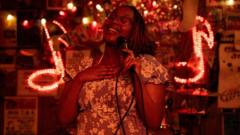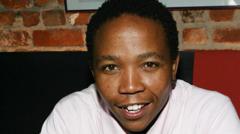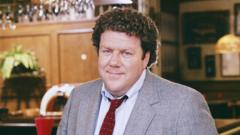As the world anticipates a new pope following Pope Francis, "Conclave" serves as a lens into the intricate and often clandestine process of selecting the leader of the Roman Catholic Church.
Unveiling the Papal Process: How "Conclave" Illuminates Vatican Secrets
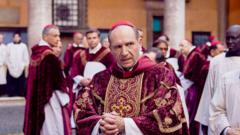
Unveiling the Papal Process: How "Conclave" Illuminates Vatican Secrets
The film "Conclave" offers a compelling portrayal of the complexities and intrigues surrounding papal elections.
In the recent Oscar-winning film "Conclave," viewers are transported into the enigmatic realm of papal elections, shedding light on a process that remains largely obscured from public view. Scheduled for 7 May, the upcoming conclave will involve 134 cardinals, deliberating privately in the Sistine Chapel, shrouded in secrecy until a plume of white smoke signals the election of a new pope.
Drawing from Robert Harris's bestselling novel, the film portrays the cardinal-electors as isolating themselves within Vatican walls, embracing an age-old tradition that seeks to eliminate external influence during the election. While ensuring they're not entirely cut off from the outside world, the cardinals' seclusion is designed to foster a pure environment for decision-making—an intriguing juxtaposition against contemporary calls for transparency, according to experts like Anna Rowlands from the University of Durham.
The film captures the tension and complexity of the cardinal's interactions, emphasizing political maneuvering and strategic alliances amid the intense atmosphere. As the narrative unfolds, the audience witnesses characters struggling with the weight of divine duty, while simultaneously grappling with earthly concerns, such as personal ambitions and rivalries. Tina Beattie, a Catholic studies scholar, highlights the extensive politicking likely to take place even before the official commencement of the conclave, hinting at a fragmented decision-making landscape among the cardinals.
In an unexpected twist, the film features a fictional unknown cardinal thrust into contention. Yet, in reality, this scenario is unlikely. All voting cardinals must have been previously appointed by a pope, and given that a significant number of these upcoming electors were chosen by Pope Francis himself, the process may hold unpredictable outcomes.
The film's director, Edward Berger, aims to bridge the ancient ritual of conclave with modern sensibilities, illustrating the cardinal's human traits, from everyday vices to complex emotions such as ambition and fear. As noted by Prof. Rowlands, "Conclave" serves as a candid exploration of the human elements entwined within a highly significant divine process, revealing that despite its sacred purpose, the conclave is ultimately, “a very human thing.”
Drawing from Robert Harris's bestselling novel, the film portrays the cardinal-electors as isolating themselves within Vatican walls, embracing an age-old tradition that seeks to eliminate external influence during the election. While ensuring they're not entirely cut off from the outside world, the cardinals' seclusion is designed to foster a pure environment for decision-making—an intriguing juxtaposition against contemporary calls for transparency, according to experts like Anna Rowlands from the University of Durham.
The film captures the tension and complexity of the cardinal's interactions, emphasizing political maneuvering and strategic alliances amid the intense atmosphere. As the narrative unfolds, the audience witnesses characters struggling with the weight of divine duty, while simultaneously grappling with earthly concerns, such as personal ambitions and rivalries. Tina Beattie, a Catholic studies scholar, highlights the extensive politicking likely to take place even before the official commencement of the conclave, hinting at a fragmented decision-making landscape among the cardinals.
In an unexpected twist, the film features a fictional unknown cardinal thrust into contention. Yet, in reality, this scenario is unlikely. All voting cardinals must have been previously appointed by a pope, and given that a significant number of these upcoming electors were chosen by Pope Francis himself, the process may hold unpredictable outcomes.
The film's director, Edward Berger, aims to bridge the ancient ritual of conclave with modern sensibilities, illustrating the cardinal's human traits, from everyday vices to complex emotions such as ambition and fear. As noted by Prof. Rowlands, "Conclave" serves as a candid exploration of the human elements entwined within a highly significant divine process, revealing that despite its sacred purpose, the conclave is ultimately, “a very human thing.”



